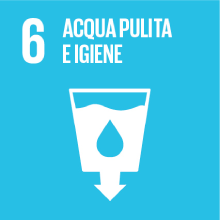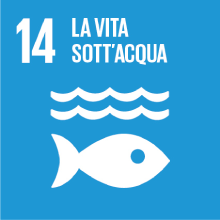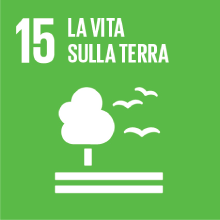ENVIRONMENTAL GEOCHEMISTRY AND HEALTH
- Anno accademico
- 2024/2025 Programmi anni precedenti
- Titolo corso in inglese
- ENVIRONMENTAL GEOCHEMISTRY AND HEALTH
- Codice insegnamento
- LMH440 (AF:440297 AR:245436)
- Modalità
- In presenza
- Crediti formativi universitari
- 6
- Livello laurea
- Laurea magistrale (DM270)
- Settore scientifico disciplinare
- GEO/08
- Periodo
- II Semestre
- Anno corso
- 2
- Sede
- VENEZIA
- Spazio Moodle
- Link allo spazio del corso
Inquadramento dell'insegnamento nel percorso del corso di studio
Geochemistry studies the chemical composition of the Earth and examines the chemical processes exchanging matter and energy between the different geochemical spheres: rocks and soils (lithosphere), surface and underground waters (hydrosphere), gases (atmosphere) and the biotic component (biosphere). The Geochemistry course provides the basis for understanding many geological and environmental processes such as (i) the chemical and chemical-physical processes that generated and shaped the Earth's crust, (ii) the processes leading to the current spatial distribution of the elements and nuclides in the different geochemical spheres; (iii) the current composition of the atmosphere and hydrosphere, (iv) the biogeochemical cycles and their interactions, and (v) the anthropic forcing and its impact on biogeochemical cycles. Knowing Geochemistry improves our understanding of the Earth, allowing us to reconstruct the past and to understand the present. In addition, human activities have a strong impact on the climate and geochemical cycles regulating the functioning of ecosystems. The application of geochemical concepts also allows understanding and predicting the behavior of the elements in an anthropized environment (a fifth sphere -the anthroposphere- has recently emerged).
Environmental Geochemistry and Health explores the relationships between the geochemical behavior and cycling of natural or anthropic compounds at the Earth’s surface and the health of all living organisms, including humans. This discipline focuses on the interface of all overlapping and interacting Earth’s spheres: atmosphere, lithosphere, pedosphere, hydrosphere, cryosphere, biosphere, and anthroposphere.
Thus, Environmental Geochemistry and Health encompasses current research at the intersection of many disciplines, such as geology, chemistry, biology, ecology, environmental studies, statistics, exposure science, epidemiology, and social sciences. Consequently, this discipline has a strong multidisciplinary perspective aiming to answer current questions about the sources, distribution, transformations, transports, cycling, interactions, removal processes, and health effects of relevant harmful natural substances and anthropogenic contaminants in the rock–soil–water–air–life systems.
Risultati di apprendimento attesi
With these expectations in mind, future generations of scientists should excel in identifying and predicting the effects of natural and anthropogenic compounds on the Earth’s surface. They should be also able to discriminate natural and anthropogenic sources, quantify their relative contributions to the environment and predict their biogeochemical interplays. Solving these challenges will be largely facilitated by scientists with robust expertise in Environmental Geochemistry.
While a robust preparation in Environmental Geochemistry provides answers to the composition, structure, properties, and behavior of the matter at the Earth’s surface, Exposure Science and Epidemiology offer the opportunity to find possible causal links between the natural or disturbed geochemical environment, health diseases, and the quality of life. This latter topic is covered by the Health Sciences concepts acquired within the course.
In particular, the attendance to this course will allow the student to:
1. Knowing the main concepts of Geochemistry and knowing correct geochemical terminology;
2. Understanding the processes that shaped the Earth to the current form, composition;
3. Understanding the mechanisms regulating the geochemical spheres;
4. Understanding the fluxes of matter and energy and the anthropic pressures that have (and will increasingly have) important impacts on the environment and on the climate;
5. Knowing how to identify and discriminate the geochemical processes between natural and anthropized environments;
6. Knowing how to apply geochemical knowledge and tools to explain natural phenomena and to solve environmental problems;
7. Knowing how to apply a critical and multidisciplinary approach to the assessment of complex environmental problems.
Prerequisiti
Contenuti
Section 1 (basic concepts) briefly introduces and summarizes key concepts for the remaining parts of the course, i.e. the atom structure, isotopes, periodic properties, atom stability, radioactivity and radioactive decays.
Section 2 (cosmochemistry and origin, evolution and structure of Planet Earth) describes the nucleosynthesis, the origin and evolution of the solar system and terrestrial planets with an introduction on the composition of meteorites. The origin of the Earth, the processes of condensation, homogeneous /heterogeneous accretion, the internal structure of the Earth, and the genesis and evolution of the Earth's crust. Key concepts of Geochemistry are presented, such as the geochemical differentiation of the Earth and the origin of its oceans and atmosphere.
Section 3 (lithosphere) analyzes the abundance and distribution of the elements in the Earth's crust. The weathering, the chemical alteration of minerals and rocks (dissolution, oxidation, hydration and hydrolysis), the solubility of CO2 and formation of H2CO3, and the role of carbonates. Introduction to the properties of clay minerals, introduction to soils.
Section 4 (atmosphere) deals with the origin, evolution, structure and chemical composition of the atmosphere, with particular attention to the troposphere. The main gaseous species present in the atmosphere will be presented, along with the geochemistry of the aerosol system, and the role of atmospheric (aeolian) transports of crustal material in the geochemical cycles. The composition of the atmosphere and on aerosol, urban and regional air pollution, health effects and influence of airborne particles on climate change.
Section 5 (hydrosphere) deals with the structure and properties of water, the geochemistry of oceans, continental and meteoric waters.
Section 6 (biosphere and geochemical cycles) introduces the (bio)geochemical cycles, analyzing the reservoirs and the pathways that chemical elements follow in the surface and crust of the Earth. The main cycles are treated: water, carbon, nitrogen, phosphorus. The interactions between the various geochemical cycles are briefly discussed.
Section 7 (anthroposphere) discusses the anthropic impact on the geochemical cycles with the analysis of some case studies. Some real case studies are presented and are interpreted starting from the geochemical associations of the elements.
Section 8 (health) explores the relationships between the geochemical behavior and cycling of natural or anthropic compounds at the Earth’s surface and the health of all living organisms, including humans.
Testi di riferimento
Slides provided by the teacher. Online resources.
Modalità di verifica dell'apprendimento
This article will be assigned by the teacher at the end of the teaching period and will be chosen on the basis of the preferences expressed by the students. A maximum of 20 points on the total of the final mark is assigned to the first part, a maximum of 10 points to the second one. Non-attending students are invited to contact the teacher to have a scientific article assigned at least 15 days before the exam date.
Modalità di esame
Metodi didattici
All lessons are provided as PowerPoint presentations and are distributed at weekly-basis to students by using the Moodle teaching platform. In the same way, the case studies discussed during the lessons and the tracks to perform the exercises will also be provided.
Students are invited to periodically consult Moodle to be up to date on lessons.
Lingua di insegnamento
Obiettivi Agenda 2030 per lo sviluppo sostenibile
Questo insegnamento tratta argomenti connessi alla macroarea "Capitale naturale e qualità dell'ambiente" e concorre alla realizzazione dei relativi obiettivi ONU dell'Agenda 2030 per lo Sviluppo Sostenibile



